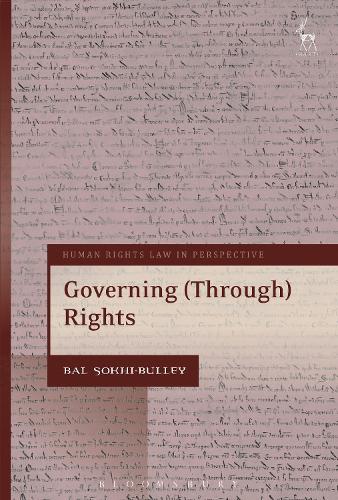
Governing (Through) Rights
(Paperback)
Available Formats
Publishing Details
Governing (Through) Rights
By (Author) Bal Sokhi-Bulley
Bloomsbury Publishing PLC
Hart Publishing
24th January 2019
United Kingdom
Classifications
Professional and Scholarly
Non Fiction
Public procurement, services and supplies
Jurisprudence and general issues
Human rights, civil rights
Public international law: human rights
Law: Human rights and civil liberties
Comparative law
342.085
Physical Properties
Paperback
184
Width 156mm, Height 234mm
263g
Description
Taking a critical attitude of dissatisfaction towards rights, the central premise of this book is that rights are technologies of governmentality. They are a regulating discourse that is itself managed through governing tactics and techniques hence governing (through) rights. Part I examines the 'problem of government' (through) rights. The opening chapter describes governmentality as a methodology that is then used to interrogate the relationship between rights and governance in three contexts: the international, regional and local. How rights regulate certain identities and conceptions of what is good governance is examined through the case study of non-state actors, specifically the NGO, in the international setting; through a case study of rights agencies, and the role of experts, indicators and the rights-based approach in the European Union or regional setting; and, in terms of the local, the challenge that the blossoming language of responsibility and community poses to rights in the name of less government (Big Society) is problematised. In Part II, on resisting government (through) rights, the book also asks what counter-conducts are possible using rights language (questioning rioting as resistance), and whether counter-conduct can be read as an ethos of the political, rights-bearing subject and as a new ethical right. Thus, the book bridges a divide between critical theory (ie Foucauldian understandings of power as governmentality) and human rights law.
Author Bio
Bal Sokhi-Bulley is Senior Lecturer in Law and Critical Theory at the University of Sussex.
